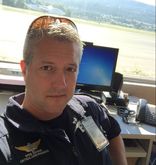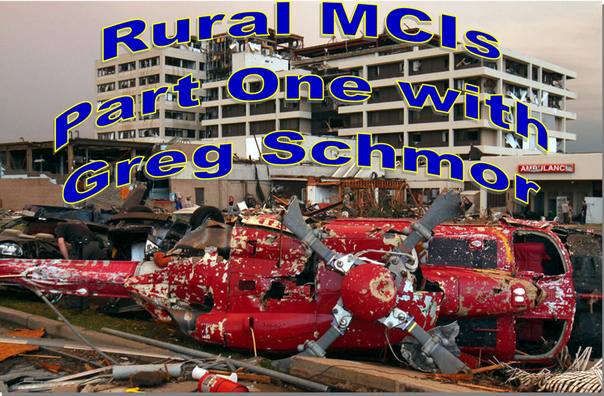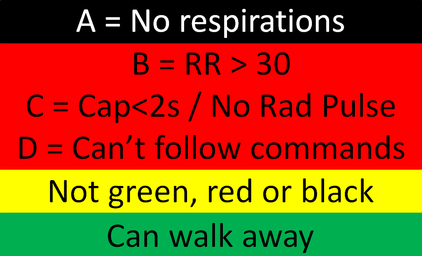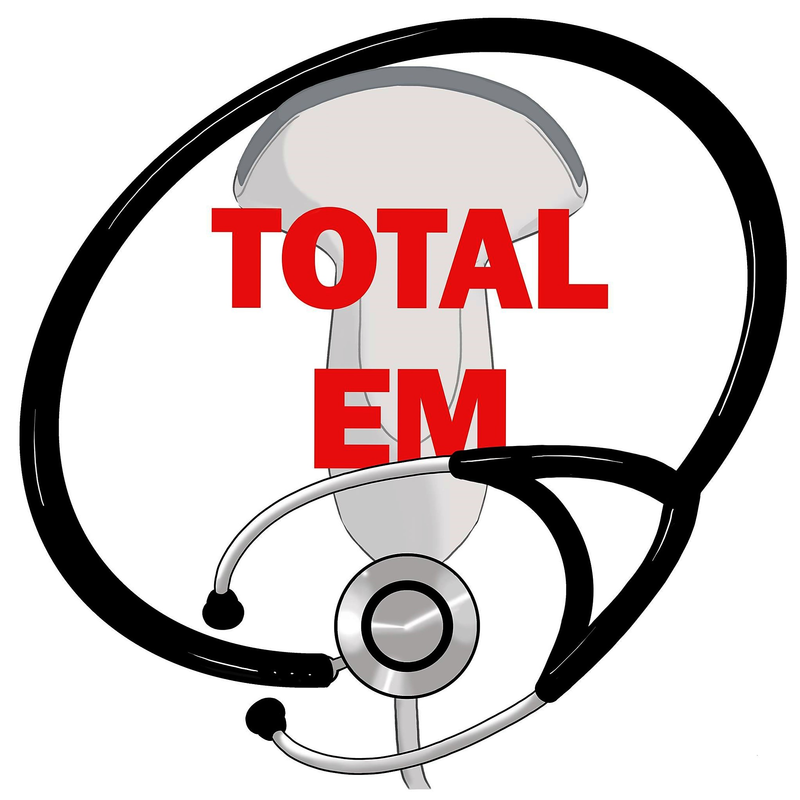|
Reading the title you may be concerned that this interview is broken up into multiple parts but fear not for this is a new series we are starting! Greg Schmor, a critical care paramedic in Canada is our first guest in a series of podcasts that we plan to have on Rural Mass Casualty Incidents (MCIs). In any system, MCIs are a challenge but there are unique difficulties that are seen in the rural/remote environment or at least are exacerbated by such an environment. This series can be of benefit for anyone who may become involved in MCIs but we focus especially on those in the rural and remote settings.

Greg Schmor (pictured right) is a critical care flight paramedic in British Columbia, Canada. The inaugural guest provided great stories that supported important observations he has made in how to help manage rural and remote MCIs. It is very much worth the time to listen to the podcast for the details, but we have summarized the major points below.
One of the first and most important points for any incident but especially in the case of disasters or MCIs is NOT to rush into anything. Take the time to properly assess the situation. When resources are limited, it is vital to know what is needed and to relay that information. In addition, this means that those working the scene need to be careful not to become another patient. These scenes are usually not stable and any injuries to rescuers will hamper the rescue of original victims. It has the potential to cause significant problems to the control of a scene, as well. Also speaking to the resource limited environment, try to keep roles flexible. Use everyone to their maximum potential. Not enough EMS on scene to both treat patients and drive? Get others rescuers like law enforcement officers and firefighters to drive the ambulance or help in the back. There are many ways to fully utilize the people on any given emergency scene and is worthy of its own separate discussion. Remember that in MCIs, there is a shortage of resources for the number of patients and the situation. For that reason, it is important to have excellent triage. Most have heard of the START triage system, but CanadiEM has done an excellent job simplifying it to a flash card style tool to remember the system (see below). Keep in mind it is not perfect but is an excellent starting point for management of multiple patients who need to be sorted quickly.
If resources allow (rare for MCIs), brief attempted resuscitation can be considered for the recently deceased (i.e. traumatic arrest). However, let us not forget what Miracle Max from the Princess Bride said about death. Focus on the "mostly dead" ones and not the "all dead" ones. Think of this as the traumatic arrest are the "all dead" (in almost all cases) and the crashing tension pneumothorax patient as the "mostly dead" patient. The "mostly dead" you can still save since they are "slightly alive" still.
One more beneficial tip from the conversation was that at least one person needs to be hands off to direct patient care. This will be the person to help guide the resuscitation efforts. They need to be able to assess the entire situation. Many should recognize this as a need in any critical care situation, but the difference for MCIs is that this one person may assume the role of managing multiple critical patients at once. It is important to remember that this is not the time for egos and that the person with the most experience and expertise for the situation (physician, PA, paramedic, etc.) needs be the one leading.
It is difficult to summarize such a great podcast and really it is best served to actually spend the time to listen for the details. However, these show notes can act as a quick reference to some of the key points from this conversation with our guest, Greg Schmor. Please let us know what you think by giving us feedback here in the comments section or contacting us on Twitter or Facebook. Remember to look us up on Libsyn and on iTunes. If you have any questions you can also comment below, email at [email protected], or send a message from the page. We hope to talk to everyone again soon. Until then, continue to provide total care everywhere.
0 Comments
Leave a Reply. |
Libsyn and iTunesWe are now on Libsyn and iTunes for your listening pleasure! Archives
August 2022
Categories |
||||||




 RSS Feed
RSS Feed